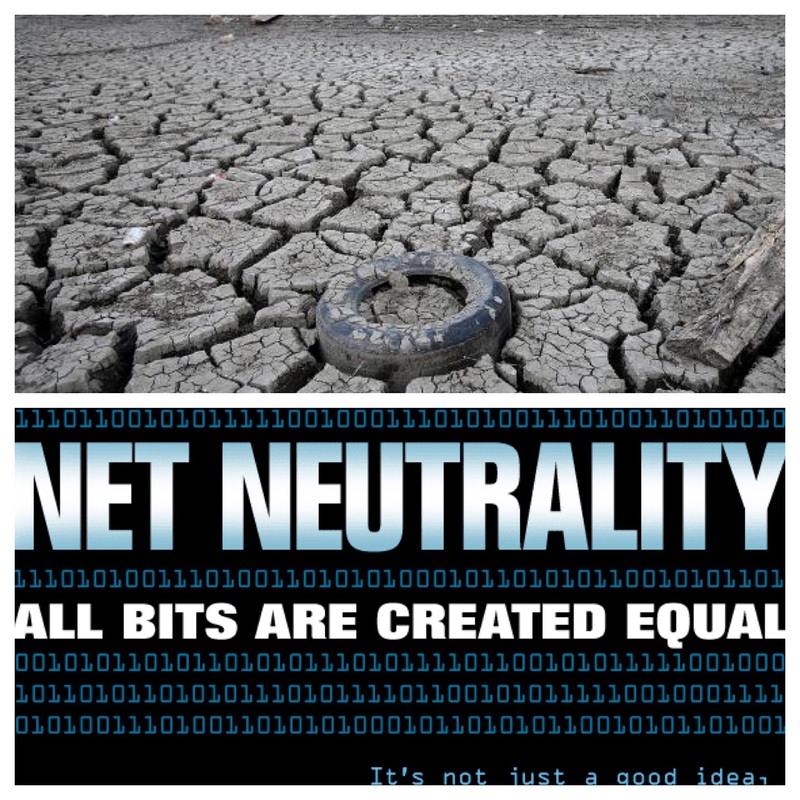In California, there is a huge underground reservoir of water that is used both by large industrial and small residential customers. Whether you're watering your almond trees or brushing your teeth, it all comes from the same source. The problem that California is dealing with is that most of the water, approximately 70%, is being used by relatively few users, and there is nothing that they can do about it. These are the farmers who have senior water rights and have been shielded by any efforts to curb their water usage.
This is parallel to what is going on with broadband in the United States. The ISPs only have so much capacity to deliver data to customers and most of it is being used by a very few services. In fact, only two companies alone account for 50% of all internet traffic: Netflix and YouTube.
In California, the farming industry and other large users with senior water rights such as bottled water producers pay absolutely nothing for the water that they pump out of the ground and they enjoy unlimited access. Their rights are more than a century old and predate any government regulation. They like the system the way it is.
Netflix and Google (they own YouTube) are all for net neutrality. Being able to flood US broadband carriers with their services while avoiding any additional costs is much to their advantage. Even though they use such a large percentage of all the bandwidth, the cost to support the entire infrastructure is spread amongst the millions of other users who all fight for the remaining piece of the pie not gobbled up by Netflix and Youtube.
So what is the solution here? Good old-fashioned capitalism and common-sense business practices. In an industry free from government regulation, all costs of production are allocated to the consumers of those resources.
Let me give you an example. Say that you make office furniture and you need a warehouse to store your fabric. Now imagine that 70% of your warehouse was filled with all the myriad fabric combinations that were used by a small piece of your business that was "custom". You would allocate 70% of your warehouse costs to that small piece of custom business. Why? So that you know you are covering your costs and have a true income statement for that custom product line.
If you simply spread the cost of your warehouse over all of your products equally you would think that you were making money on custom orders when you really in fact were not. Furthermore, the customers purchasing those custom products would purchase even more of it due to your below-cost pricing, further damaging your profits. What ends up happening is that the buyers of your bread-and-butter main products end up subsidizing the custom business.
What would happen if California could somehow allocate the cost of the drought to the users of the water reservoir? The large industrial users would instantly be incentivized to curtail their water usage. Also, California would have additional funds to purchase water from neighboring states or invest in new technologies. This would allow for more water for all the small customers who, until now, have been trying to conserve as much as possible on their small 30% slice of the pie.
Likewise, net neutrality needs to die, and the ISPs need to have the freedom to allocate their infrastructure costs to their largest users. Netflix, YouTube, et al, will be incentivized to invest in more efficient technologies of transmission, and the ISPs will have the additional funds for capital projects to expand their capacity. Nothing is more inviting to a company than customers lined up with cash in hand.
But what we have now is the unfortunate fact that the cost of our broadband infrastructure is spread evenly amongst all users. As a result, the small customers are subsidizing the few large ones.



 RSS Feed
RSS Feed